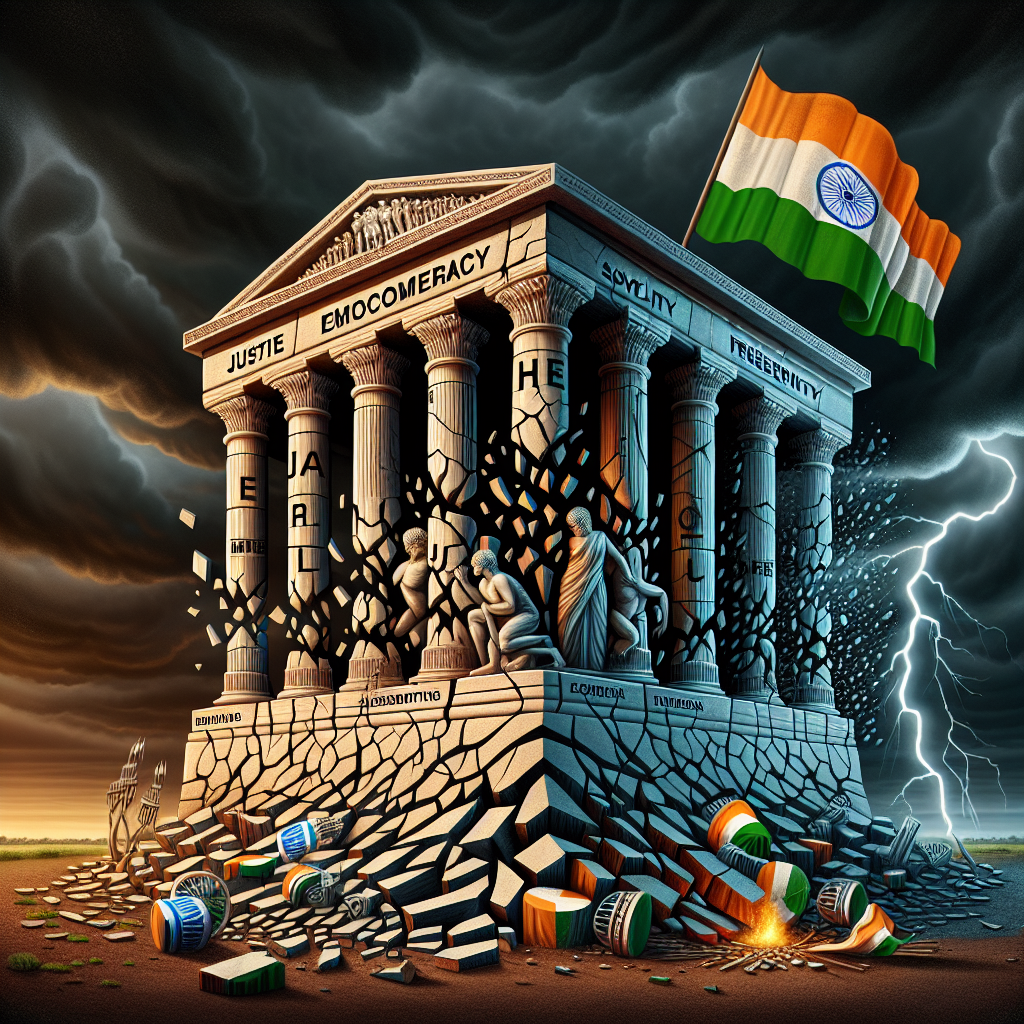India’s Ongoing Conflicts Threaten Its Democratic Foundations
India’s Ongoing Conflicts Threaten Its Democratic Foundations
Introduction
India, the world’s largest democracy, is currently grappling with a series of internal conflicts that pose significant threats to its democratic principles. These challenges are multifaceted, involving political, social, and economic dimensions that could undermine the country’s democratic integrity.
Political Turmoil
Political instability is a major concern, with increasing polarization and partisanship affecting governance. Key issues include:
- Rising authoritarian tendencies within the government.
- Suppression of dissent and freedom of speech.
- Manipulation of democratic institutions for political gain.
Social Unrest
Social conflicts are exacerbating tensions across the nation, driven by:
- Religious and ethnic divisions leading to communal violence.
- Protests against government policies perceived as discriminatory.
- Growing inequality and lack of social justice.
Economic Challenges
Economic issues are further straining India’s democratic fabric, including:
- High unemployment rates and economic disparity.
- Corruption and lack of transparency in economic policies.
- Impact of global economic trends on domestic stability.
Conclusion
India’s democratic foundations are under significant pressure from ongoing conflicts that span political, social, and economic spheres. Addressing these challenges requires a concerted effort to uphold democratic values, promote inclusivity, and ensure equitable development. The future of India’s democracy hinges on its ability to navigate these complex issues effectively.




































